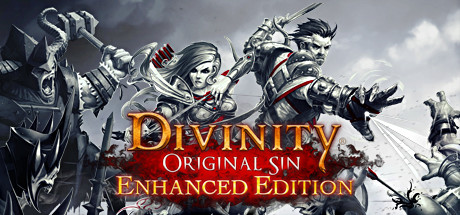Gaming has focused so much on the Warhammer 40k universe, with its zealous militarism, sci-fi trappings and outlandish weaponry, that it's easy to forget that there was always normal Warhammer as well. The original's fantasy setting has rarely been visited in games, and the extravagantly punctuated Warhammer: The End Times - Vermintide does a good job of showing us what we've been missing.
As that verbose title suggests, this game is set during the last desperate struggle of the city of Ubersreik as it is overrun by the Skaven, a race of savage rat-people. Playing as one of five heroes, together with three other players (or AI bots), you must tackle a series of missions to try and restore order.
In gameplay terms, that means Vermintide is incredibly easy to describe. It's Left 4 Dead, but with ratmen instead of zombies and dwarves, witches and knights instead of survivors with shotguns.
Seeing how Valve is clearly in no rush to follow up Left 4 Dead 2 (it's been six years, folks) that means there's a definite need to be filled. And, make no mistake, Vermintide isn't just a game inspired by Left 4 Dead, or in a similar style. In many key respects it's essentially a cover version, right down to the enemies that map exactly onto the "special infected" from Valve's series.
The Gutter Runner is an exact match for Left 4 Dead's Hunter zombie, leaping from the shadows, pinning you to the ground and slashing at you repeatedly with enormous blades. The Poison Wind Globadier is the Boomer, spewing out toxic fumes that disorient and blind you, and exploding with horrific splash damage. The Packmaster fills the Smoker slot, snaring unwary players and dragging them away. Armoured Stormvermin patrols are like the Witch - a fearsome foe that is best evaded rather than confronted. And, of course, the Rat Ogre replaces the Tank as the obligatory hulking brute that delivers crushing physical attacks.
This familiarity certainly helps you find your feet as your enter Vermintide's world for the first time, and while it's a shame Fatshark hasn't stamped a more distinct identity on the recipe, the studio's experience on delirious multiplayer melee games like War of the Vikings means that it plays brilliantly all the same.
Combat is up close and nasty, with real heft to the various weapons each character takes into battle. Broadswords swing with convincing weight, thunking into gibbering crowds of ratmen, sending gouts of blood, limbs and heads flying. Arrows and guns are similarly satisfying, powering home with tangible impact, while magic attacks create beefy explosions and cause widespread fire damage.
Simply wading into the fray is enormous fun, and enemies are well calibrated so that no single foe takes too many hits to carve up, but when faced in numbers require just the right amount of strategy. Every character can swap quickly from melee weapon to a ranged alternative, while throwables such as bombs and incendiary devices can be found dotted around the maps.
There's a generous amount of content in the game, too, with 13 mission maps to tackle. Although there isn't a story as such, the game does unfold across three "acts", with each adding more maps and missions that can be selected from your tavern hub. Beating each mission in an act is required before you can start on the next section.
Although your objectives are kept simple - gather together sacks of grain or barrels of gunpowder, destroy specific enemy resources or reach a specific location - the maps are nicely varied, ranging from gloomy backstreets to dank sewers, fog-shrouded forests and desolate farms. The map design is nicely pitched as well, with each offering multiple routes and an agreeable element of verticality.
It's in the medium to long term that Vermintide begins to distinguish itself from its obvious inspiration. You gain XP for each mission, which in turn unlocks new hub features and weapons for your various characters. This levelling is attached to you, the player, not individual characters so you're able to play as someone different without feeling like you're being penalised and having to start over.
Each successful mission ends with a dice roll, the success of which grants you a new weapon. Exploration yields more dice from chests, increasing your chances of earning something worthwhile. These weapons can then be equipped by the appropriate character, or taken to the forge in the hub where you can combine unwanted weapons to create more powerful ones, or salvage them to earn upgrade points for the weapons you want to keep.
It's a simple but effective system, if not particularly well explained in-game, and it gives you something to keep working towards rather than simply repeating the same missions over and over with no progression. It's just a shame that the elements that show Fatshark has more in mind than simply copying Left 4 Dead are the same elements that are vaguely explained and hidden away until you've made substantial progress.
Where Vermintide really struggles is in the balancing. While the moment by moment action is incredibly enjoyable, it lacks the razor edge pacing that Valve brought to the table. Left 4 Dead's infamous "AI Director" continually adjusted the experience based on player actions, creating mini-adventures every time that felt alive and reactive. Vermintide doesn't really feel like it has anything like that, and so missions can lack a sense of dread and escalation.
Worse, some of the missions are - at present - frustratingly pitched. One in particular, a grain-gathering Act 2 mission called Wheat and Chaff, is horrendously unfair, spawning outrageous numbers of special enemies one after another, far in excess of anything seen in the other missions.
This is compounded by a loot system that often feels needlessly stingy, with the result that player progress is often running far ahead of their arsenal. Playthroughs on the harder difficulties aren't rewarded enough, which means it's easy to spend many hours still using basic gear, keeping your fingers crossed for something better that never seems to arrive.
It's also worth pointing out that while the game is capable of looking absolutely fantastic, it does throw out its fair share of glitches and graphical quirks. One Rat Ogre spawned in the sky, and ran around above our heads for ages before suddenly falling to the ground. More grievously, one mission refused to end when all four players were safely at the exit point, leading to a lot of frustration as we were swarmed and killed when we should have been victorious. Such moments are thankfully rare, but they do happen.
Even with those balancing issues and occasional bugs, Vermintide is still worth playing. Find a good team and it's a compelling and exhilarating co-op game that delivers meaty, bloody action with just the right element of thought and strategy. Each character requires a subtly different style of play, and each weapon type and enemy also forces a small but significant change in approach. None of it is overwhelming, but you can feel yourself understanding the nuances more with each game. There's a pull to the experience that is hard to resist.
Tweaks are certainly needed, and will hopefully come before the game launches for consoles early next year, but that's no reason to put off your war against the rodents.













